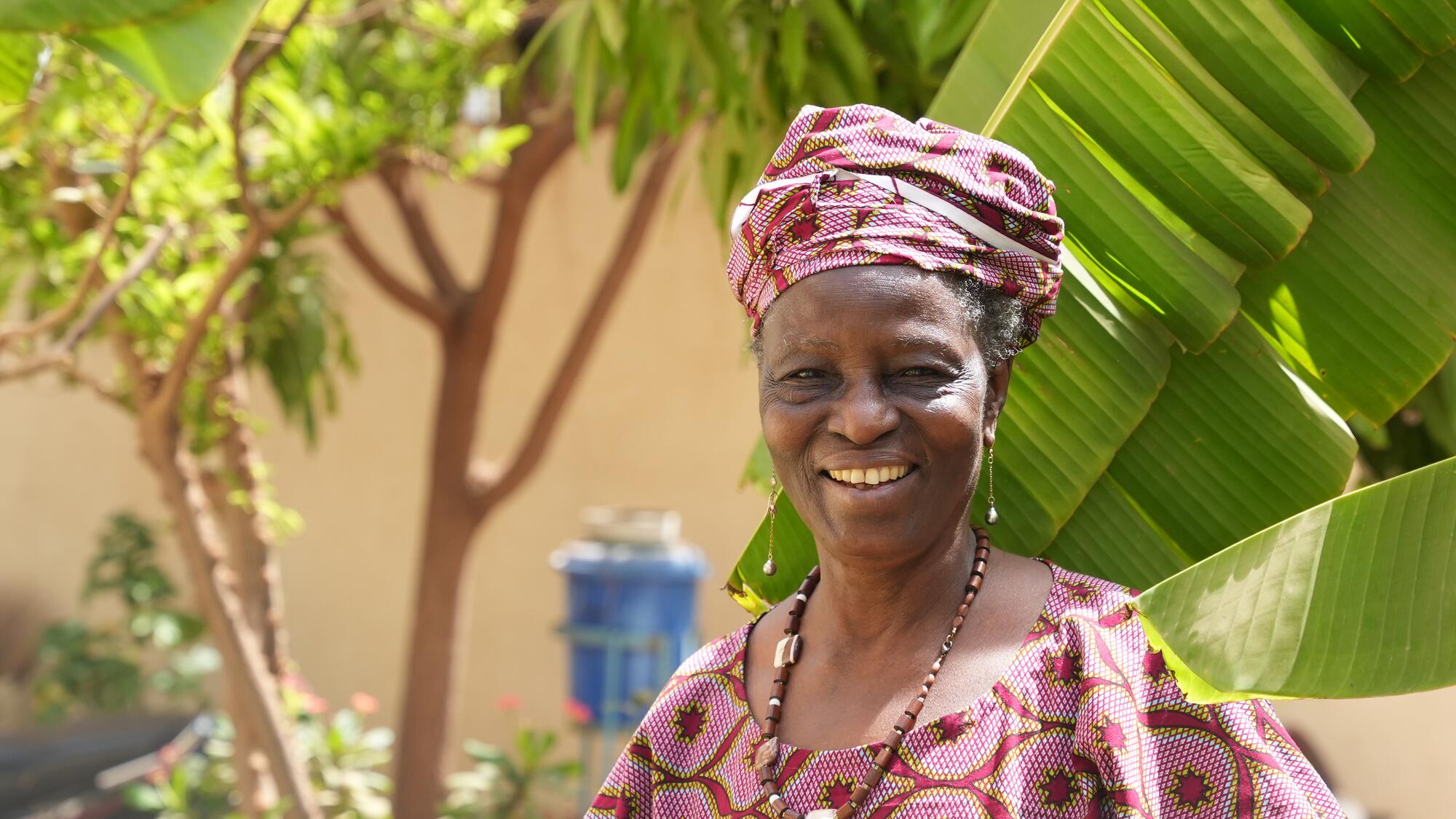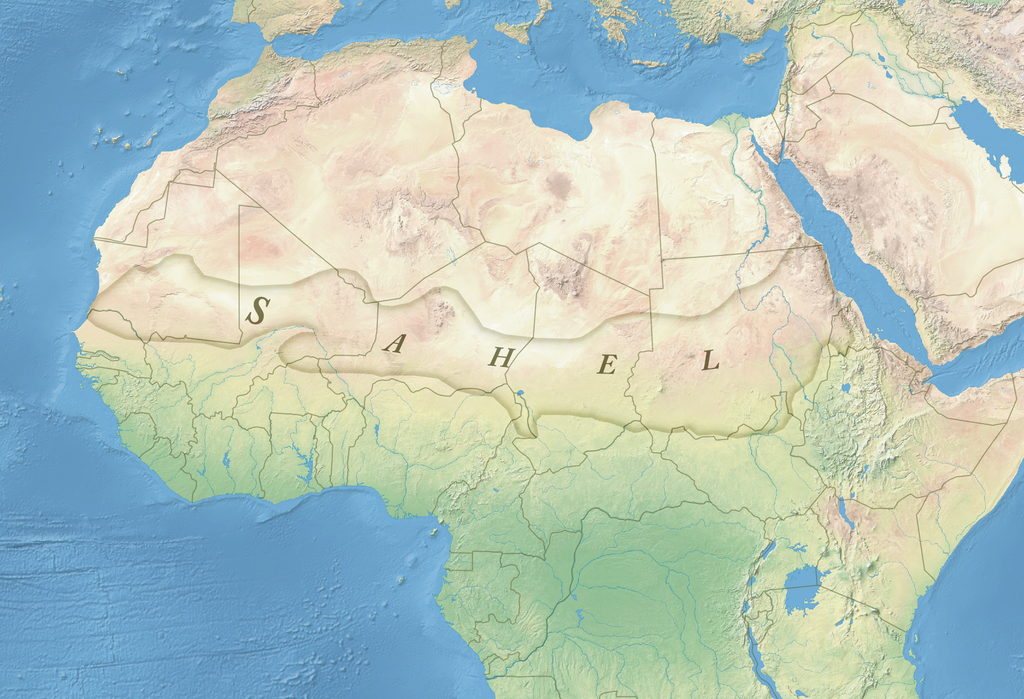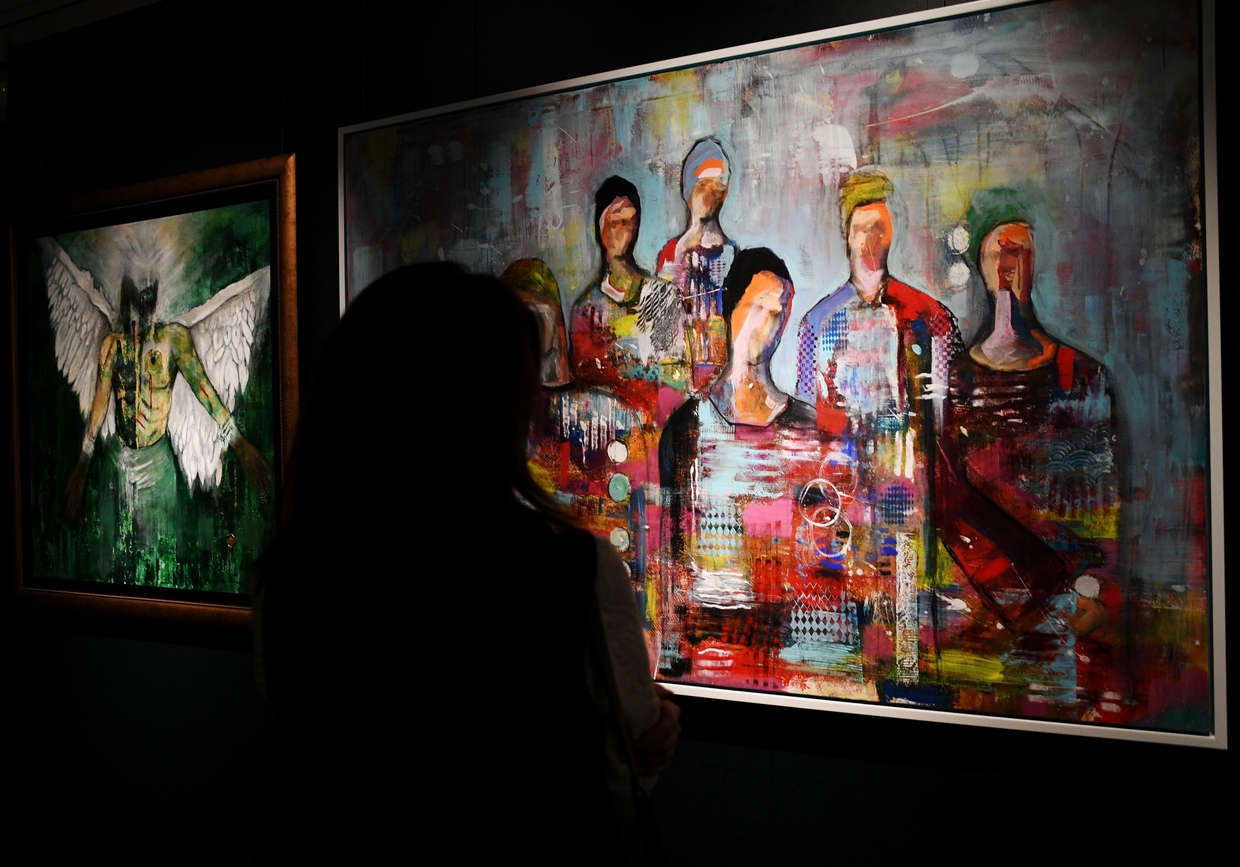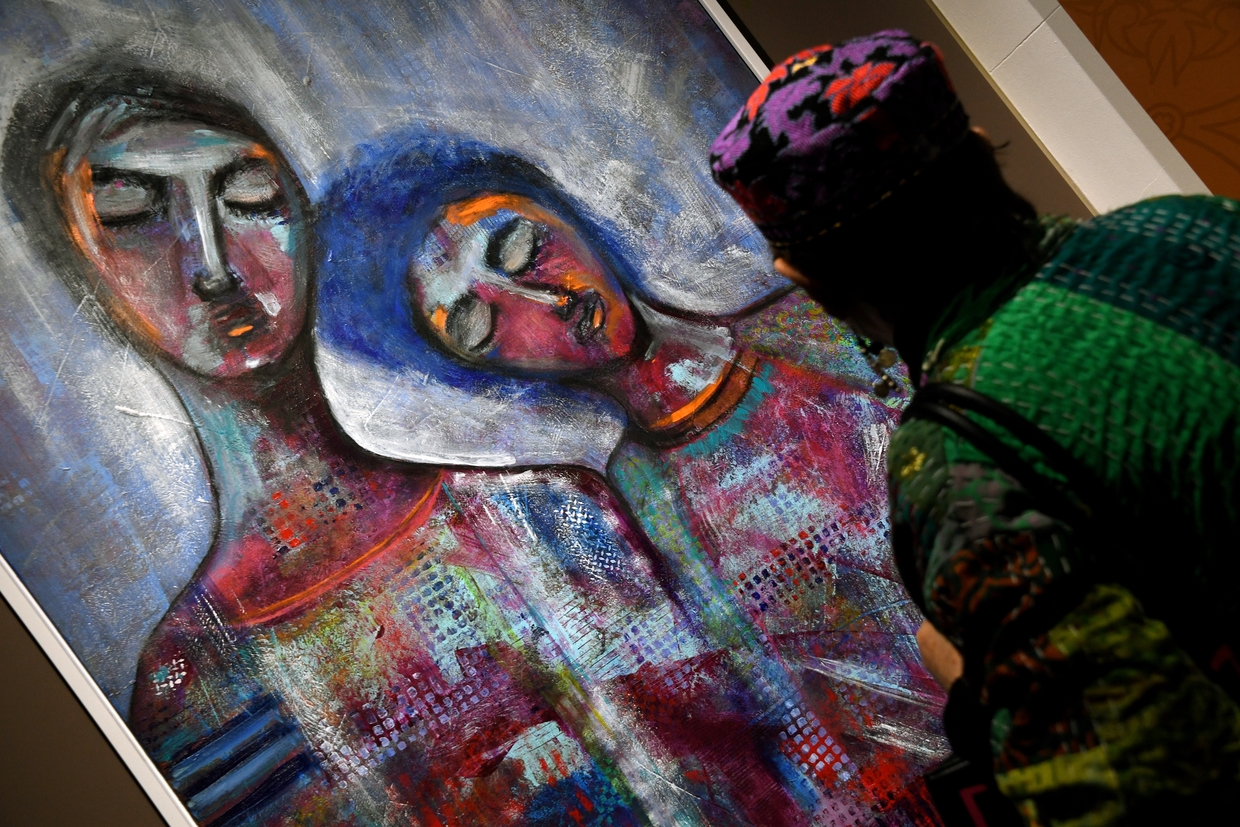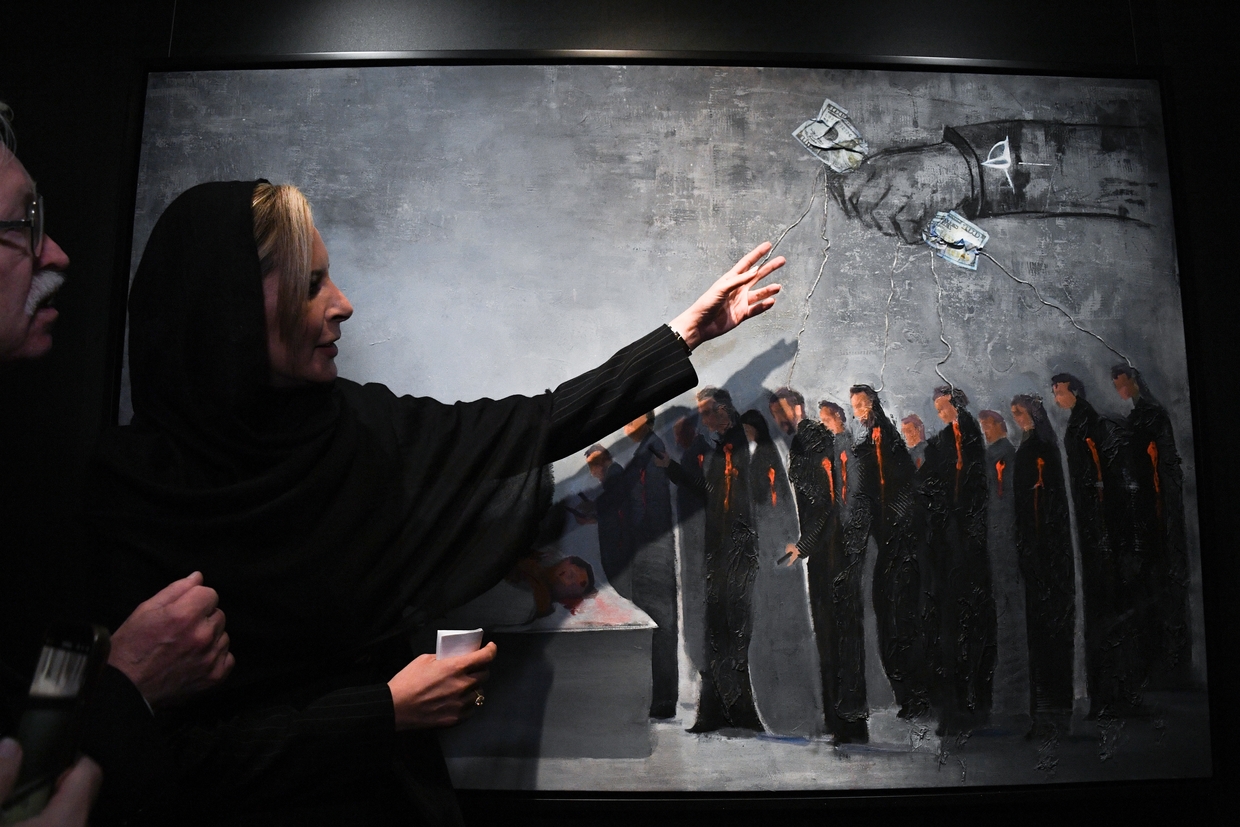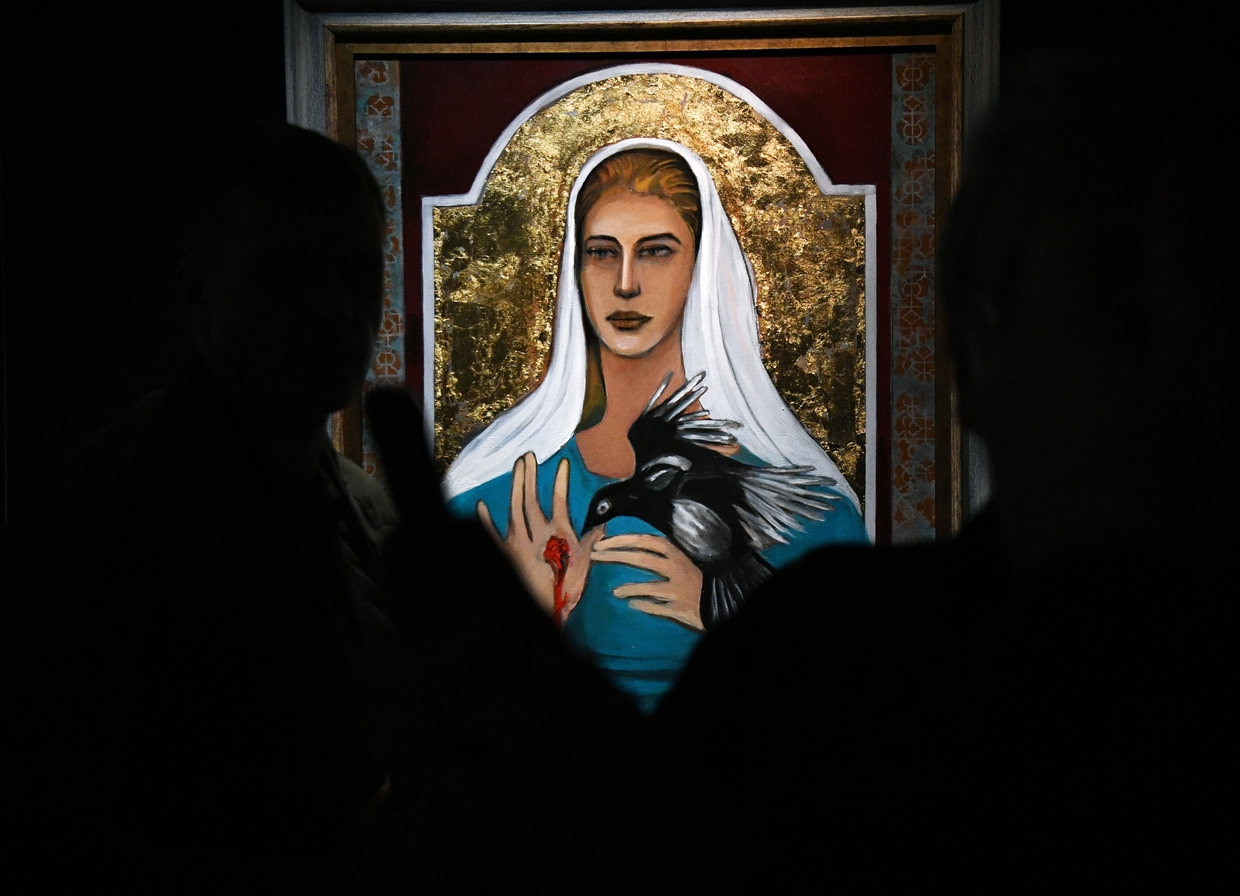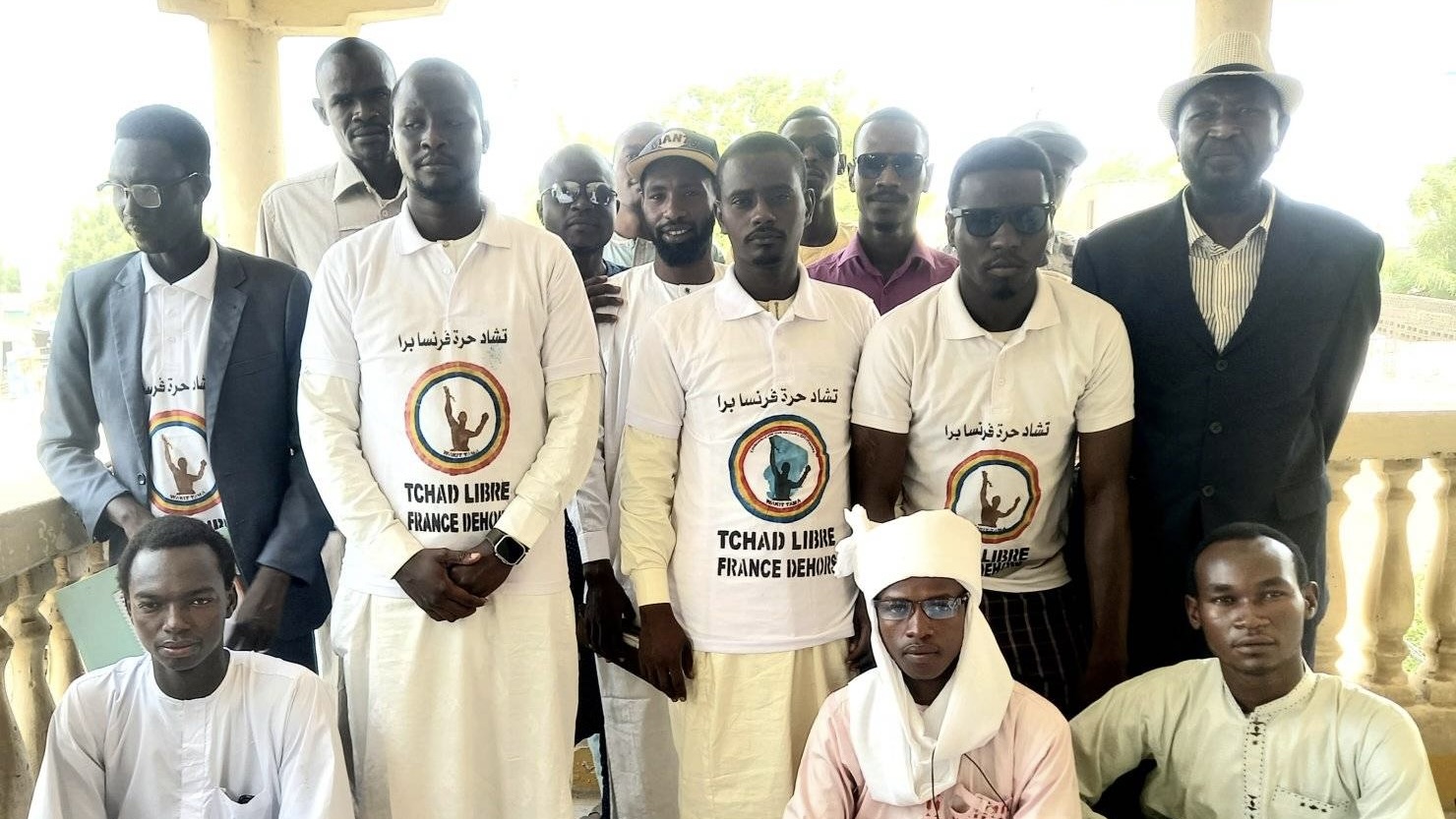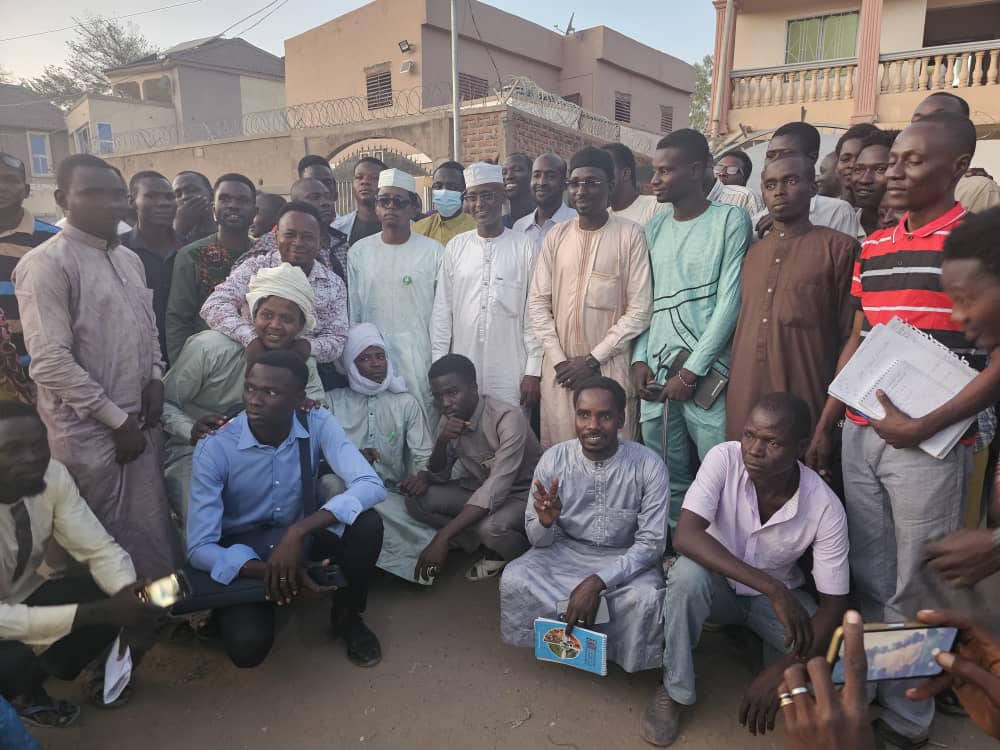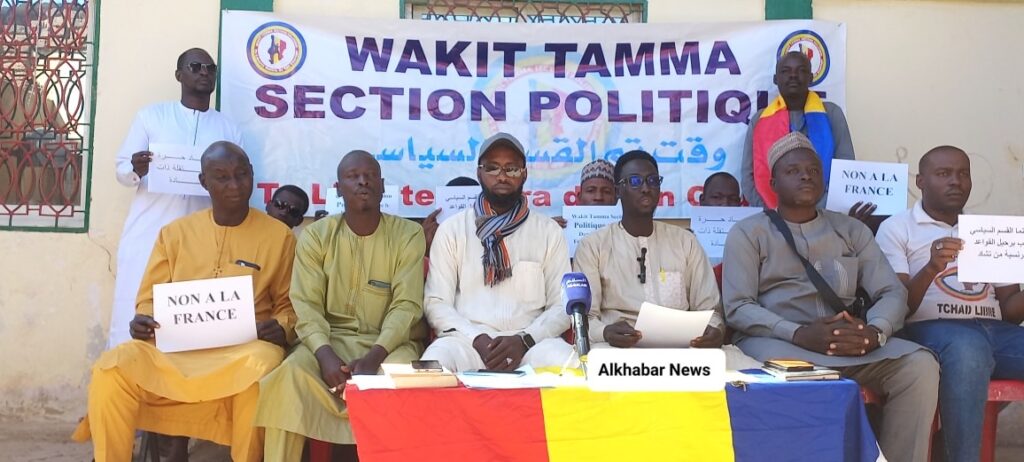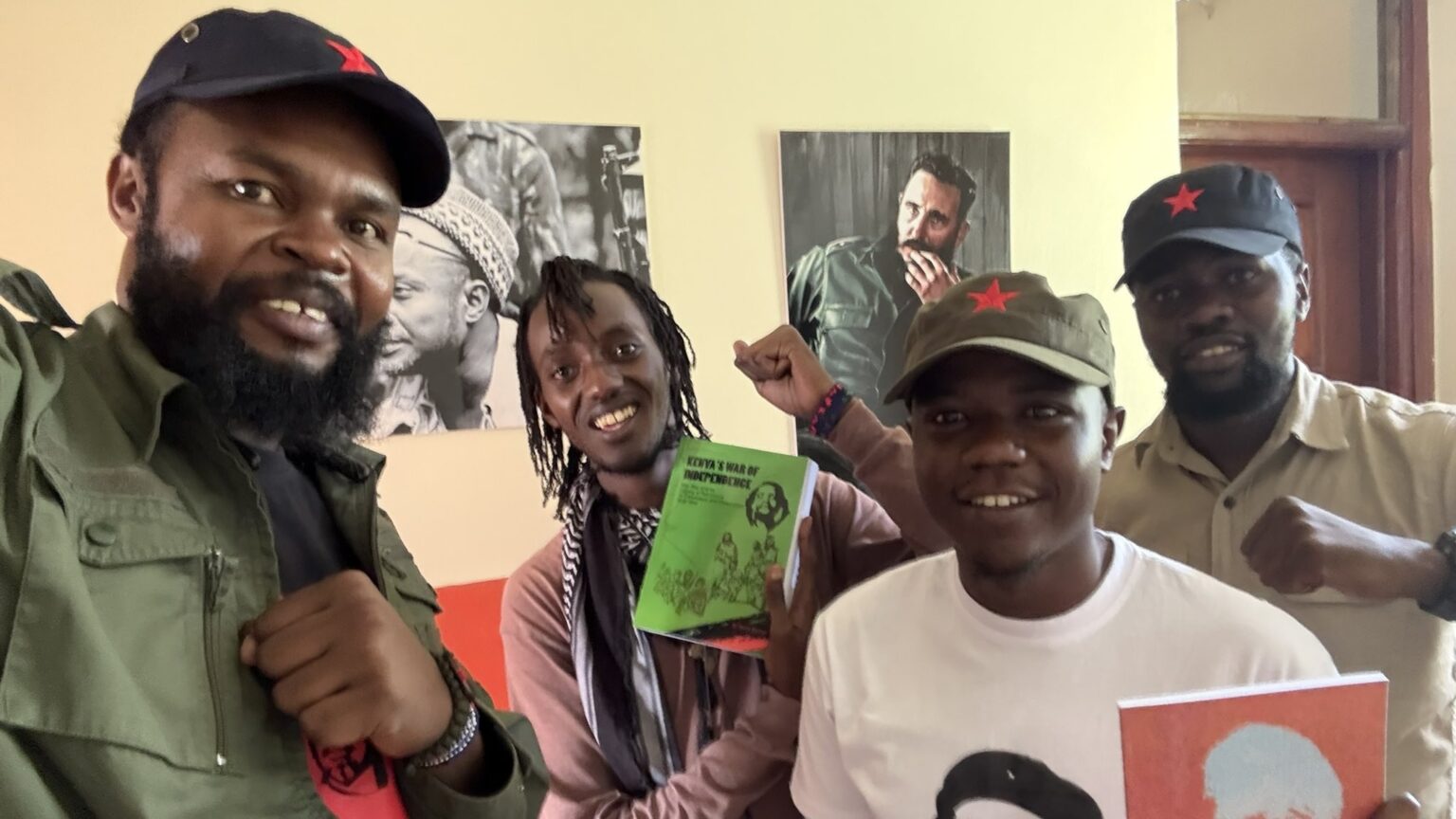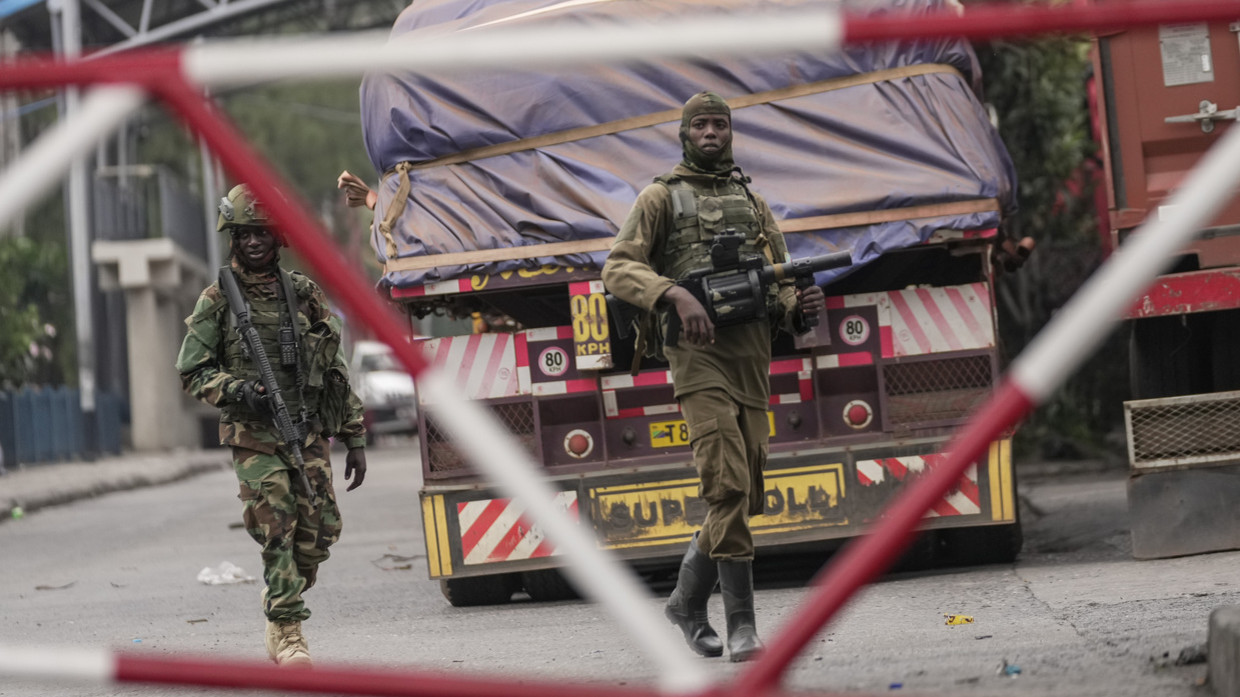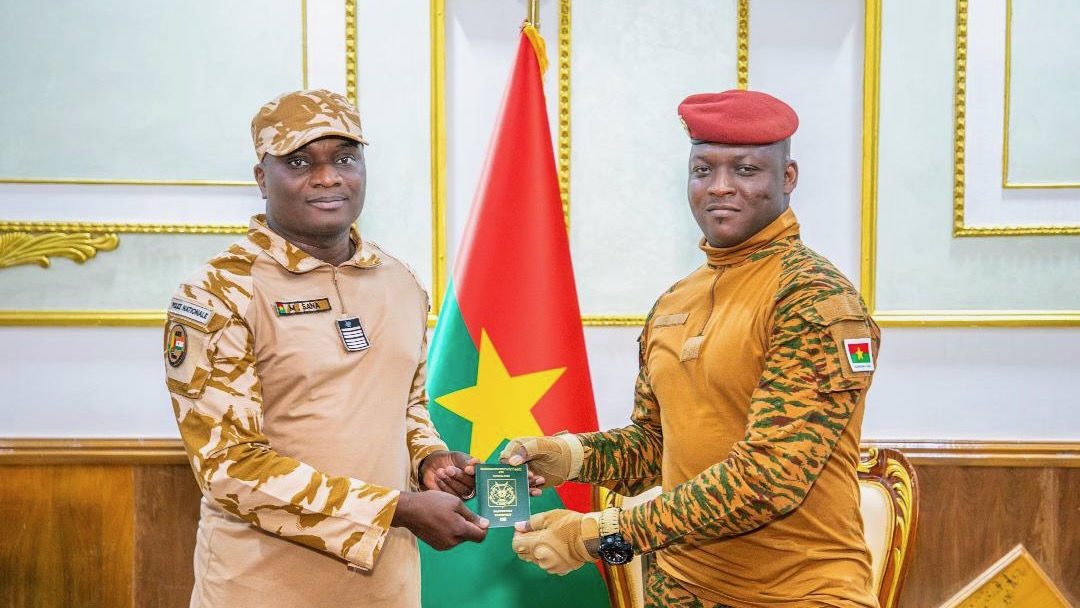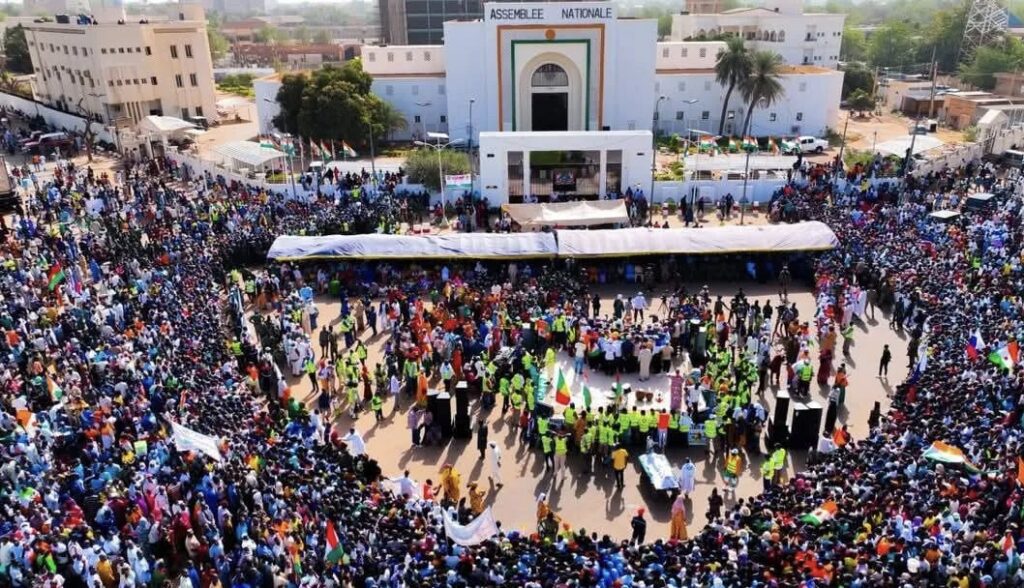From Nkrumah to Neoliberalism
Posted by Internationalist 360° on March 18, 2025
Gyekye Tanoh Interviewed by Sa’eed Husaini
 Villagio Vista apartments, Accra Ghana. Image © Delali Adogla-Bessa
Villagio Vista apartments, Accra Ghana. Image © Delali Adogla-Bessa
On the podcast, we explore: How did Ghana go from Nkrumah’s radical vision to neoliberal entrenchment? Gyekye Tanoh unpacks the forces behind its political stability, deepening inequality, and the fractures shaping its future.
Recorded on the anniversary of the coup that removed Kwame Nkrumah on February 24, 1966, and in the wake of Ghana’s recent presidential inauguration, this episode examines Ghana’s political economy to make sense of its democratic present.
A three-decade-long tradition of electoral alternation between two dominant political parties has earned Ghana a reputation as a bastion of democracy in coup-prone West Africa. Yet its spiraling inequality, recurrent debt crises, and growing civic unrest suggest a society that is far from prosperous. Ghana’s seemingly stable neoliberal present sharply contrasts with the more turbulent early years of its postcolonial history—characterized by the high-modernist project of the Nkrumah government to push through the industrial transformation of a primary export economy crashing against the rocks of vested domestic and international interests.
How did that period of revolutionary and counterrevolutionary ambition and intrigue give way to the seemingly tamed Ghana of today? Why has a two-party system characterized by alternation without change proven so durable? In light of the anti-galamsey protests, the emergence of social movements critical of the economic status quo, and the rise of the nominally anti-imperialist military regimes to its north, are there indications in Ghanaian society of what might replace the neoliberal two-party system? To examine these themes, Sa’eed Husaini, Africa Is a Country’s West Africa regional editor and cohost of The Nigerian Scam podcast, is joined by Gyekye Tanoh, the Ghanaian social activist, political economist, and former head of the Political Economy Unit at Third World Network-Africa.
Listen to the show and read a transcript below.
So today, we thought we’d take a break from the Nigeria-centrism—if that’s even a word—that has plagued us recently on this podcast. Instead, we’re having a conversation about a slightly saner and more stable country to our west, albeit one with its own political and economic struggles, as we’ll discuss as the show progresses. I’m speaking, of course, about our dear neighbor Ghana.
Two major events frame our discussion today. First, February 24—just two days before this recording—marked the 59th anniversary of the coup that overthrew the renowned anticolonial leader and African intellectual statesman, Kwame Nkrumah. Second, this conversation takes place only a few months after the inauguration of John Mahama as Ghana’s new president. Interestingly, Mahama is a former president who has returned to power after the electorate initially denied him re-election.
Both events seem to represent two poles of Ghanaian history. On the one hand, there’s the turbulent but inspiring postcolonial period—marked by statesmanship, ambition, intrigue, and betrayal. On the other, we have a more stable, but perhaps disheartening, political present—characterized by predictable democratic alternations and a seemingly frozen economic crisis.
So, is this a fair characterization of Ghana’s trajectory? How might an examination of Ghana’s political economy help us understand its political present? How does Ghana navigate its role in ECOWAS? What do the anti-galamsey protests reveal about governance? And what is the future of Ghana’s two-party system?
These are the kinds of questions we’re exploring today, and we’re very excited to be joined by an insightful interlocutor to help us tackle them—none other than Comrade Gyeke Tanoh, a social activist, educator, researcher, and development economist based in Accra. Comrade, we’re really grateful you made the time to join us today. Thank you for being here.
GK
Thank you very much, Sa’eed. It’s a pleasure.
SH
I wanted to dig into some key aspects of Ghana’s history and political economy. Certain figures loom large in Ghana’s history, and I think none looms larger than Kwame Nkrumah.
So, maybe we could start with a brief look back at the Nkrumah period as a way to contextualize the present.
In addition to Nkrumah, one might think of two significant economic forces: gold and cocoa. The Nkrumah era is often remembered—or at least assumed—to have attempted a shift away from a single-commodity, export-dependent economy toward a more industrialized one, featuring heavy infrastructure investment and social welfare policies.
Would you say that’s a fair characterization of the Nkrumah period? And to what extent were those ambitions actually realized in moving Ghana’s economy away from the classic postcolonial, primary commodity-based model?
GK
Yeah, well, I think in your introduction, you described that period as dynamic but turbulent. It reminds me of something someone once said: “There are decades when nothing happens, and then there are days when decades happen.” The Nkrumah period was one of those times—so much political, social, and economic transformation was packed into such a short span.
One of the most significant aspects of that era was precisely what you mentioned: the deliberate effort to break away from the colonial economic structure, which had locked African economies into mono-crop, primary-commodity-export dependence. The entire economic model was designed to ensure that African countries remained dependent on a narrow set of raw material exports—cocoa, gold, timber—while industrialization and value addition took place elsewhere. The Nkrumah government actively sought to change this. Industrialization was the key mechanism for trying to break this cycle. You’re absolutely right in characterizing it that way. Now, to what extent did it succeed? First, let’s highlight some of the key shifts that resulted from this strategy.
A crucial first step was establishing state control over the domestic dimension of the primary commodity-export economy. Whether it was cocoa or other key resources, there was significant public investment to ensure stability and predictability. Farmers were guaranteed a minimum price, ensuring a stable income floor. But it wasn’t just about cash crops or export commodities—food production and the broader agrarian structure were also incorporated into the strategy. However, at its core, this policy sought to wrest control of the foreign-exchange-earning export sector from European merchant houses that had long dominated it.
To achieve this, the government built an entire infrastructure of economic coordination—buying centers, internal trading systems, warehousing, grading mechanisms, agricultural extension services, and research institutions to support agricultural modernization. This was a systematic approach to economic transformation, not just a series of isolated policies. A key part of this strategy was ensuring that raw materials were processed domestically rather than exported in their unprocessed form. Industrial plants were established to process cocoa at various stages—chocolate factories, cocoa butter and oil refineries, and other manufacturing facilities. This ensured that Ghana retained more value from its own resources instead of simply shipping them abroad for others to profit from.
But industrialization alone wasn’t enough. A state-led intervention in agriculture was also necessary. This meant not just price support and subsidies, but also ensuring that local industries absorbed some of the output. Instead of everything being exported raw, a growing share of agricultural production was directed toward domestic manufacturing. The goal was to create a self-reinforcing cycle, where local production fed into local industries, which in turn supported local workers and consumers.
Of course, none of this would have been possible without state control over finance. You cannot finance industrialization at this scale unless you have public banking and national control over development finance. The establishment of state-owned banks and development finance institutions ensured that resources were directed toward industrial growth rather than speculation or foreign interests.From this perspective, the Nkrumah period saw a remarkable level of economic innovation. Even conventional economists like Schumpeter have argued that late-developing economies require a higher degree of institutional innovation. In Ghana’s case, this necessity was clear. Today, we often hear buzzwords like “disruption,” but back then, real economic structures were being disrupted in profound ways.
A crucial consequence of this strategy was that the economy became less dependent on external markets. Domestic investment, demand, and consumption began to play a larger role in driving growth. This had important implications for income distribution, savings, and reinvestment, creating stronger interconnections within the national economy. At least on paper, it was a progressive intervention—one that challenged the existing economic structures rather than reinforcing them. It was radical and counter-cyclical, meaning it moved against the dominant global economic trends, rather than following them.
At the same time, the level of coordination required for this strategy to succeed was immense. Institutionally, there needed to be alignment between state agencies, economic planners, traders, farmers, and industrialists. This degree of state and institutional capacity-building was a major challenge. If everything had simply been left to the free market, such coordination wouldn’t have been necessary—but then again, nothing transformative would have happened. Today, we tend to underestimate the importance of institutional capacity. Soft infrastructure—the institutions, policies, and governance mechanisms that underpin an economy—is often overlooked. But now that our region is experiencing economic and political turmoil, we should recognize the immense value of those elements.
And on that note, let me end this part of the discussion with two significant points.First, once you introduce new skills and institutions into the economy, once you attempt to harmonize different interests and expand domestic economic capabilities, you naturally shift the weight of national economic growth. Under Nkrumah, domestic economic activity became a far more significant driver of national development than it had been before, or than it is today. This shift had a direct impact on welfare levels in society.
You mentioned welfare earlier, and yes, economic transformation of this kind necessarily required improvements in living standards. If local consumption is critical for sustaining industrialization, then you need to invest in the workforce that will power that transformation. That means a skilled and stable labor force, which in turn requires significant investment in education, wages, and working conditions.
At the same time, if the economy is being driven by domestic consumption, then it cannot rely on simply importing cheap labor or suppressing wages. You cannot push wages to the bottom if you genuinely aim to sustain a growing, consumer-driven economy. The so-called race to the bottom—where workers’ wages and rights are continuously eroded—was not compatible with the economic strategy of the Nkrumah era. And this is the key contrast with today. I am not saying that exploitation did not exist under Nkrumah—of course, capitalism always involves exploitation of labor, no matter the model. But there is a difference between an economic strategy that requires uplifting labor and one that depends on its degradation.
Today, economic growth is increasingly reliant on cheap labor, deregulation, and informality. And to sustain that, the deliberate degradation of labor has become a necessary condition of the system. That is a fundamental shift. Poverty and inequality certainly existed back then, but the overall trajectory was different. There was a relative upliftment of the working and laboring classes, not as an act of benevolence, but as a necessary feature of the economic model.
Beyond economics, there were also significant political and social changes. Increasing the weight and influence of urban workers, professionals, and technical experts in the national workforce created a society that was structurally different from what came before. When I was growing up, for example, being a banker or a big trader might have made you wealthier, but your social status was not necessarily greater than that of an engineer working in the public sector.
There has been a real reorientation since then. In Nkrumah’s time, the steady expansion of a well-paid, urban workforce year after year meant that labor had growing political weight. Trade unions, professional associations, and other collective organizations had real influence in national affairs. Their ideas and their interests mattered politically in a way that is not the case today, when economic fragmentation has left people looking out only for themselves. Today, people are desperate to prove that they are not being political, even about issues that are fundamentally political. But back then, you had far greater potential for participation from below, even in cases where you had a one-party system. Whether or not these participatory mechanisms succeeded is another question, but the intention was there.
Ultimately, this was an era of bold and ambitious innovation, grounded in the real economic challenges facing Ghana. Given the weight of those challenges, it was necessary to be that ambitious. And in the process, progressive social dynamics emerged—the expansion of education and technical skills, the rise of a politically influential urban workforce, and the growing weight of professional associations in national life.
Above all, the biggest contrast between then and now is this: Economic growth under Nkrumah did not rely on weakening labor, cheapening wages, or impoverishing farmers. No matter how our governments speak today, that is the reality of the present system. And I hope that as we continue this discussion, we can demonstrate just how stark the difference is between then and now.
SH
Yeah, it sounds like it, and it certainly marks quite a clear departure from the colonial period, which we haven’t had time to get into. But I think a lot of listeners will be able to imagine that context. That’s a very helpful background.
Before we get to the present day, though, there was obviously a period of transition between the Nkrumah era and what prevails now. It was a contradictory transition in many ways, and it began with the 1966 coup, which we mentioned in the introduction.
Could you maybe set that backdrop for us? This period of innovation and turbulence that you’ve described must have created some winners, some of whom you’ve already spoken about, but it also seems to have made some people angry. I’m sure there’s more to the coup than just that, but perhaps one way to phrase the question is: What went wrong?
And maybe that could be an entry point into describing how the political economy shifted after Nkrumah, particularly under military rule.
GK
Okay, well, first of all, the main group that was upset by Nkrumah’s policies was, of course, those who had been dominant in the economy before. That included a combination of transnational interests, which, during the colonial period, had enjoyed uncontested control and capitalization of the economy.
They weren’t totally displaced—that would be an exaggeration—but they did lose ground. Take state finance, for example. At the time of independence, about 99 percent of banking, insurance, and financial services were controlled by British banks. And those banks had a deliberate policy, as was the case in Nigeria and many other parts of Africa, of not lending to local businesses. The reason was clear: If local businesses were properly financed, they would challenge British and European monopolies.
So, under Nkrumah, there was a reversal—a shift toward state banking and financial intermediation, which introduced new mechanisms for financing economic activity. This was a major shift, and it disrupted what had been a very lucrative system for certain actors. Beyond the transnational interests, there were also sections of the upper merchant class, including domestic money lenders, who had essentially functioned as adjuncts to the British system. Their privileged position declined, even if they weren’t impoverished or directly dispossessed. In relative terms, they lost out.
At the same time, new economic entrants were emerging. This isn’t a caste system—economic structures evolve, and new elites form. But that doesn’t mean the old economic networks disappeared. If you trace these structures back—through the merchant classes, ruling families, and even the networks built during the slave trade—you find a remarkable degree of continuity. Many of the families that had benefited under colonial rule still had deep economic and political roots, and they weren’t necessarily going to accept a diminished position without resistance.
SH
We’ve made sure that the bloodlines continue.
GK
Exactly. Intergenerational wealth is always intergenerational in that sense. So from that point of view, there were those who felt displaced. That’s not to say that the old merchant classes and traditional chiefs didn’t want independence—they did. Of course, they wanted it. Every ruling group or elite wants a state that serves its own interests first. The difference is that they wanted independence on their own terms, under conditions they could control.
The real issue was that the leadership of the nationalist struggle—figures like Nkrumah and his allies—did not come from those old elites. Instead, they emerged from lower-middle-class backgrounds and working-class elements. Many of them were what the elites themselves called the “Verandah Boys”—the ordinary people, those who lived on the margins of the established power structures. That was something the old elites couldn’t accept. So they opposed everything. Take the hydroelectric dam project, for example. It was supposed to provide electricity, not just for social welfare and progress, but as a foundation for industrialization. Yet they opposed it. But the irony is that, despite their political opposition, once those projects were completed, they recognized their value and found ways to benefit from them.
Given the massive public investment that had gone into Nkrumah’s economic agenda—particularly the state-led industries and infrastructure—the regimes that followed him did not completely dismantle what he had built. Instead, they diversified it. What that meant, in practice, was privatization. Some industries were transferred into private hands, either domestically, where sections of the elite enriched themselves through legal means, or internationally, where foreign ownership increased as part of efforts to renew ties with global capital.
So while the state capitalist model—with its emphasis on light manufacturing, energy infrastructure, and state provision of key services—wasn’t completely dismantled, its foundation was undermined. This created a political dilemma for the post-Nkrumah elites. The number of urban workers and their associations—the very groups that had grown under Nkrumah’s system—remained intact. The coup did not weaken them directly. But once privatization started, things changed. Privatization meant “cleaning up the books”—cutting costs, laying off workers, redirecting resources from the public domain into private hands. Workers suffered as a result. This created intense political turmoil, because the structures that could have resisted these changes had not been weakened, yet the new regime was pursuing policies that directly harmed them.
That was one of the key reasons for the instability throughout the 1970s. The 1970s could have been different. It’s not a coincidence that after the Nigerian Civil War, there was, at least for a time, an economic boom in Nigeria—especially during the early years of the Gowon administration. That boom was largely driven by the rise in global commodity prices, particularly oil. Many people attribute that oil price increase to the Arab-Israeli war, but the truth is, it was also part of a broader shift in global economic relations. During Nkrumah’s time, the effort to assert state control over key domestic industries was mirrored by international efforts to challenge the dominance of Western economic interests.
Across the Global South, commodity-producing countries were forming alliances—you had organizations like OPEC, the International Cocoa Organization, and the International Coffee Organization. These weren’t just symbolic—they represented real economic coordination that Western powers had to contend with. So if, in that period, cocoa was getting record prices, and gold was getting record prices, why did Ghana still experience economic turmoil and collapse? The answer, I think, lies in what I just described: the social conflict introduced by privatization. The political struggle between those pushing for privatization and those resisting it created a period of chaos and instability. One side or the other had to win—it couldn’t remain unresolved. So when the people who overthrew Nkrumah took power, they essentially represented a continuity regime—from the military rulers to the civilian government of the Second Republic, all the way until 1972, when yet another military coup brought in a new leadership under the banner of “accountability.”
The first thing they did was appease the working classes—the very groups that had been sidelined by previous governments. But this happened in a period when the underlying economic crisis remained unresolved. The kind of economic problems that had emerged before the rise of neoliberal free-market policies had not been solved.
I don’t want to complicate the discussion too much, but the key point is that the crisis persisted, and political power kept shifting between factions without actually addressing it. The most crucial issue was that those who opposed dismantling the state sector had not been politically or socially weakened. This created a dilemma for any government that came into power, as it had to govern in a system where privatization efforts clashed with entrenched interests. That’s why Ghana tottered from crisis to crisis throughout the 1970s. This instability didn’t mean that the economic foundation built under Nkrumah was thriving. On the contrary, it was deteriorating, being whittled down, distorted, and corrupted. But at the same time, it remained in place and continued to shape the economy.
The problem was that while these structures could block further reforms, they were no longer capable of driving the country forward. This led to a state of stagnation and economic decline. One example of this is public investment and state finance. Throughout this period, state-led investment kept rising, but it wasn’t producing results. When the first global recession hit in 1979, bringing Nigeria’s economic boom to a halt, it also severely impacted Ghana. Then, in 1982, another major crash triggered a debt crisis. Without getting into too many details, the point is that this was a period of global economic downturn, and every African and Third World country suffered. It was a global recession, so everyone took a hit.
But even during this downturn, public investment in Ghana kept increasing. Today, common economic wisdom tells us that when there is an economic crisis, the government should cut back spending, balance the books, and reduce its financial commitments. But in those days, it was the opposite. In 1978–1979, for example, public capital investment in the economy reached 28 percent—an extremely high figure, almost on par with what you’d expect in Southeast Asia. The problem, however, was that this investment wasn’t directed into new technology or new sectors that could diversify the economy and create new dynamism.
In other words, the policy choices may have been misguided, but the fundamental idea—that public investment is necessary for economic renewal—was not incorrect. Even when economies are in serious crisis, the idea that governments cannot invest in public infrastructure, industries, or economic renewal is completely false. We’ve seen this even in the biggest economies in the world—after the global financial crisis of 2008–2009, governments poured money into bailouts, saving industries, banks, and corporations.
Yet in our case, in Africa, we are always told that when we face a crisis, the answer is to squeeze our people even further—to cut spending, increase austerity, and submit to external financial controls. We need to completely reject this logic. Whether as a theoretical position or, more importantly, as a practical political reality, part of moving forward must involve challenging these economic falsehoods, which have now been enshrined as common sense—as if they were some kind of unquestionable, God-given truth. It’s totally false, and we must refuse to accept it.
So basically, you had all these different elements coming together—the radicalization of middle-class sentiment and the growing frustration of the working classes and others below them. This, I think, is what pushed the military to the brink. When society is shaken to that degree, it causes cracks even at the top levels of power. The ruling elite starts to lose confidence—some believe they should repress the opposition more harshly, while others think it’s time to back down and offer concessions. The illusion of an unshakable monolith cracks.
And in Ghana’s case, that’s exactly what happened. By 1978, the head of state, General Acheampong, was overthrown in a palace coup by his own officers. The new leadership—a group of army chiefs and senior officers—recognized the growing unrest and announced plans to transition to civilian rule. This is how the Third Republic came into being, directly resulting from the mass opposition to the Union Government idea, which had made it clear that the military could not rule indefinitely.
But the generals weren’t interested in real change—they were simply trying to recycle the old politicians, hoping to give them a peaceful retirement where they could enjoy their wealth without disturbing the system. For the political elite, this was a satisfactory outcome—they could now return to power officially. For the rest of the population, especially the working classes and lower ranks of society, this was not enough.
What did they get out of it? The right to put a piece of paper in a ballot box every four years? That wasn’t nearly as meaningful as real economic change. And so, instead of calming down, the population interpreted this concession as a sign of weakness. They smelled blood—they saw that the ruling class was losing control—and that emboldened them. I’m not saying that they had a clear plan of where to go or what exactly to do next, but the very fact that the government had been forced to make a concession made people even more determined to push further.
SH
Right—so instead of stabilizing things, it just exacerbated the crisis?
GK
Exactly. And so, as the philosopher Gramsci would put it, society had entered a real stalemate. The ruling class couldn’t continue in the same old way, and the lower classes refused to accept it. But at the same time, the lower classes didn’t have a clear agenda for what came next. They were strong enough to neutralize the old order, but not strong enough to fully break through and create a new one.
From that perspective, the balance of power in society was already in deep crisis. Take voter participation, for example. People often talk about the declining turnout in the Fourth Republic, but even in the Third Republic, voter participation was shockingly low. Ghana had been under military rule for seven years, and this wasn’t just any military rule—it was brutal. The military regime that took power was far more vicious than the one that had overthrown Nkrumah. It lasted longer, penetrated deeper into society, and provoked mass resistance from students, trade unions, and the general population.
You would think that after such repression, when the time finally came for a transition to civilian rule, people would greet it with enthusiasm. But when the Third Republic was inaugurated, the election that brought Hilla Limann to power saw the lowest voter turnout in Ghana’s history—just 26 percent.
Why? Because the population already knew what was coming. They could see that the same old recycled politicians, with their tired rhetoric and outdated visions, had nothing new to offer. Meanwhile, people were already creating their own forms of resistance and organization from below. These weren’t yet fully developed movements, but in strategic areas of society, you could see the emergence of insurgent institutions.
It was in this context that a section of junior military officers, led by Rawlings, mutinied against their generals. Their message was clear: “You cannot simply hand power over. We need a house-cleaning exercise before you go.” This is what catapulted Rawlings into national prominence in May–June 1979, just before the scheduled elections that were meant to inaugurate the Third Republic.
We always joke with Nigerians about how our histories mirror each other. Your first coup was January 1966, ours was in February 1966. You transitioned to civilian rule in October 1979, with Obasanjo handing over to Shagari, and at the exact same time, Ghana was going through its own transition. But right before the June 1979 election, when everything seemed set for a return to civilian rule, an eruption happened.
This wasn’t just any coup—it was an expression of mass frustration, the possibility of popular intervention in national politics in a way that no election could offer. Elections alone couldn’t give people the same power, participation, and self-determination that they had just experienced through direct action. By the time the election finally took place, it was already stillborn—the lower classes had identified with Rawlings as the representative of their turmoil and their upsurge.
And this is the key point: By the time the Third Republic was born, it had no real power. The only way it could have established control was by crushing the trade unions, smashing the junior ranks in the military, and restoring all the old hierarchies. But it couldn’t do that. In fact, Limann’s party was the successor to Nkrumah’s CPP, so they tried to cloak themselves in radical rhetoric, even though the state was in no position to pursue radical policies. But the real order of the day—the only way to restore profitability, administrative authority, and economic stability—would have been to brutally repress all the insurgent forces.
They were completely incapable of doing that. Even when they made small hints in that direction—suggesting that inflation required higher interest rates or currency devaluation—their own party voted against the budget out of fear. By 1980, even sections of the military and police had started forming what they called defense committees—self-organized groups that functioned like workers’ councils, directly electing their own leadership and determining their own actions. This was reminiscent of Russia in 1917, a moment when people inside the very institutions of the state were starting to take control.
And then you had a general strike by industrial workers in Accra in 1980. It wasn’t just a protest—they occupied Parliament for days. The striking workers took control of the building, and even the parliamentary kitchen staff supported them, cooking meals for the strikers. At that moment, the streets had more power than Parliament. This wasn’t just some theoretical idea—it was happening in real life. Rawlings himself later put it bluntly: Power was lying in the streets.
It’s a very pithy way of putting it, but it’s true—power really did lie in the streets. And in that kind of situation, there were only two possible outcomes: Either you get a brutal counterrevolution, a Bucharest-type general who crushes the uprising in blood to restore the old order, or you get the insurgent movement from below re-establishing a new system. In the end, that’s what seemed to happen.
I say “seemed” with emphasis because Rawlings, while being persecuted by the government as a symbol of all the turmoil, had both immense popular support and a real personal crisis—his life was clearly in danger. The state cracked down on him hard, deploying relentless repression, but the discontent wouldn’t go away. Students were up in arms, traders were in revolt, and the government was lurching from crisis to crisis. By the end of 1981, Rawlings and his allies took power in a coup, but the very makeup of the group that led it tells you just how weak the state had become.
Rawlings had been decommissioned from the military, meaning he wasn’t even a soldier at the time, and of the eight people who led the coup, not one was an active-duty officer. Half of them were civilians. How does something like that happen? A group of former officers and civilians take over, and no one resists? In theory, the coup should have been crushed within minutes. So why didn’t that happen?
The answer became obvious when support flooded in. Students poured into the streets. Trade unions backed the coup. Instead of resistance, the population rallied behind them. Why? Because the underlying social crisis had never been resolved. And at some point, that crisis had to be settled—either by smashing the insurgent forces and restoring the old order or by transforming society altogether.
Normally, when ruling elites feel threatened, a faction of the top pushes back and leads a counterrevolution. But Ghana saw something unusual—Rawlings himself became the counterrevolution. He came to power backed by the very forces that had risen against the system, which put him in a unique position. He could crack down on the movement that had supported him in a way that no traditional member of the old ruling class, whether military or civilian, could have ever done. Is that making sense?
SH
Yeah, absolutely.
GK
Every government survives on a balance of consent and coercion, and that balance shifts depending on the circumstances. But in Rawlings’s case, he didn’t need the level of repression that a member of the old guard would have. He already had the trust of the people who had overthrown the old order. First, he used them to neutralize the old elite, and once his position stabilized, he turned against them. When they started demanding too much, he cracked down, then gradually brought elements of the old, defeated ruling class back into the system, incorporating them into his new order.
That’s why I say when social forces neutralize each other, even a weak state apparatus can rise above them and consolidate power. This is exactly what Rawlings represents—he wasn’t just a product of the uprising, he was also the figure who stabilized it and ultimately repressed it. And because of that, he was able to push through privatizations and dismissals that no other faction of the Ghanaian ruling class could have attempted. A civilian government or a military leader from the old guard would have faced too much resistance, but Rawlings? People accepted it from him. Yes, there was repression, but there was also the feeling that this must be for the national interest. People thought, “It can’t be a bad man like Rawlings doing this—it must be for the greater good.”
SH
So you’re saying people wanted to give his reforms a chance?
GK
Yes, because people saw him as one of us. That was the perception. But let’s not forget, there was no clear agenda for what “us” actually meant or where the country should go. All people knew was that the thieves, the generals, and the corrupt elite had to go. They knew what they were against, but what they were for was far less defined. When Rawlings took power, he wasn’t just seen as part of the movement—he was seen as its savior. People literally called him Junior Jesus, the redeemer of their struggles. Given the stalemate in society, he had a level of political leeway that no one else could have had. And the more experienced members of the global ruling class recognized that immediately.
I remember the Financial Times, the house paper of the British ruling class, ran a tiny two-paragraph report on the coup. Back in Nkrumah’s time, an event like this would have warranted a whole center spread, but by the time of Rawlings, Ghana was seen as a collapsed state—insignificant on the global stage. The article barely made an impression, buried in the back pages, but it made one crucial point: “Rawlings has come to power. His extreme popularity gives him a chance to undertake reforms that no one else can.”
Now, we all know what they meant by reforms. If you had shown that article to Rawlings that day, he probably would have laughed at the idea that he was about to implement the agenda of foreign powers. But the reality of his position, the pressures he faced, and the relationships he had to navigate put him in a place where he could get away with things no one else could have. In the name of “bringing sanity back into the system,” he led the privatization of state enterprises that were deemed corrupt or inefficient. He was the one who broke the back of the radical movement, and in doing so, he won credibility with foreign investors, the IMF, and the global financial elite.
The long and short of it is that Ghana entered a strange situation. On one hand, there was a wave of deindustrialization, though to be fair, many African countries, including Nigeria, went through the same thing. But in Ghana’s case, because the state had owned such a massive share of the economy, the scale of the rollback was far more severe than in any other sub-Saharan African country. The social dislocation that came with it was immense.
At the same time, this economic restructuring didn’t just destroy industries—it also weakened the traditional centers of social power. Student organizations, trade unions, and industrial workers—groups that had once been powerful—were systematically dismantled. But neoliberalism didn’t just require breaking the radical forces—it also required rehabilitating sections of the old ruling class, specifically those willing to work with Rawlings and his circle. So, in a way, the ruling class itself was reconfigured. You had new entrants into the elite—people like Rawlings himself—and you also had a recycling of the old guard. These two forces merged, and that’s what we see reflected in Ghana’s two-party system today.
(Much more at link.)
https://libya360.wordpress.com/2025/03/ ... iberalism/


